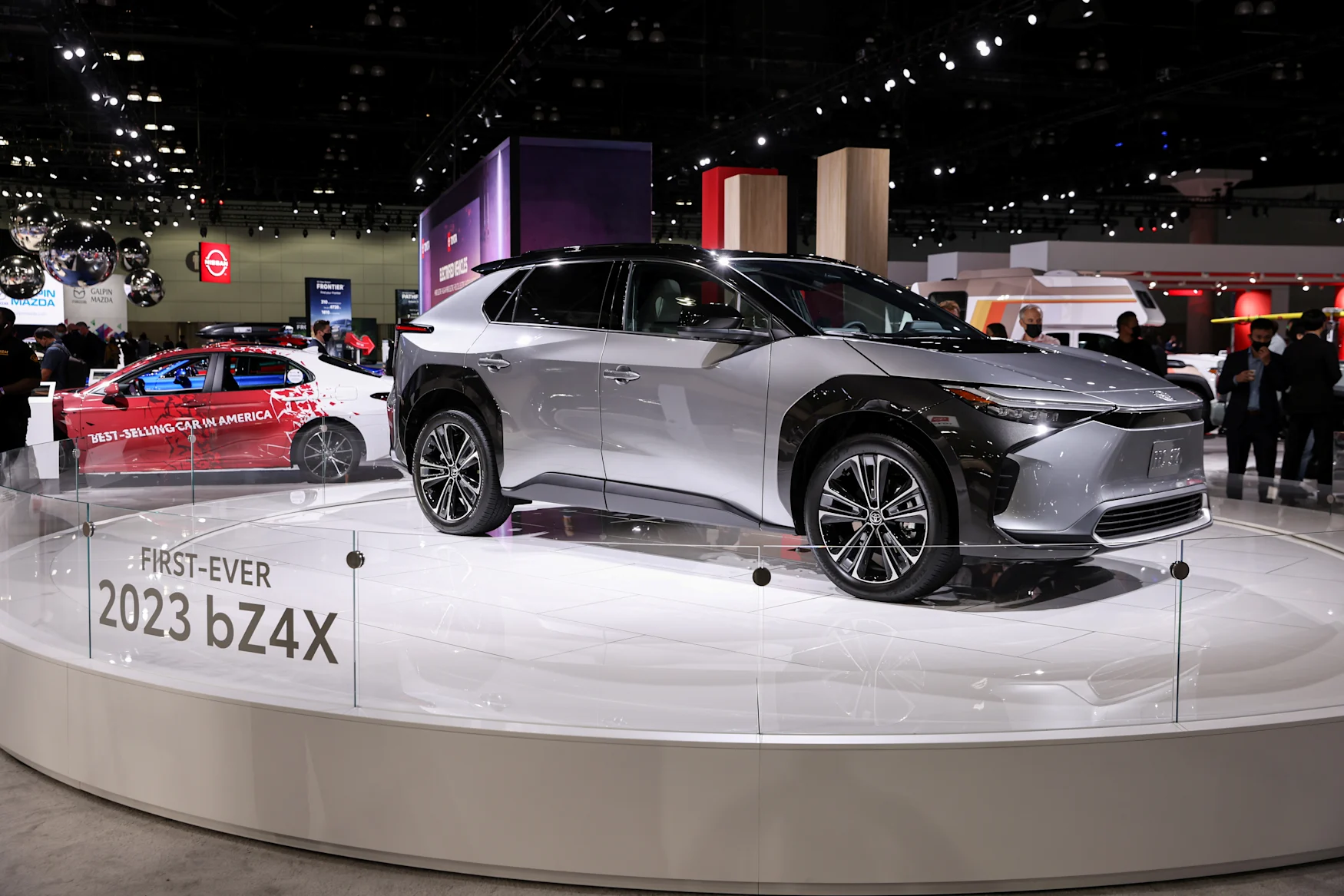[ad_1]
Google Stadia
Stadia didn’t last long. But at times during its short life, it was amazing. During Cyberpunk 2077’s unmitigated disaster of a launch, Google’s cloud gaming platform was one of the best places to run the sprawling game with minimal problems. When many couldn’t get the latest PlayStation or Xbox, Stadia was a way to play games with visual fidelity beyond the PS4 and Xbox One – as long as your internet connection could handle it.
The problem (and there are a few reasons why it struggled) was Stadia didn’t have enough games to stay relevant. Exclusives were rare and there simply weren’t as many games as the competition. Many of Stadia’s titles were also far more expensive to buy compared to other online game stores – even when on sale. When the company closed its internal development studios last year, it was not a good sign.
Then, a rumor gathered pace in late July 2022 that Stadia was going to be shuttered by the end of the summer. It was never substantiated, but it was enough to send devoted Stadia gamers (and their communities in places like Reddit) into freefall. Perhaps this was because Google has a reputation for killing its darlings. (RIP Google Hangouts, Play Music, Cardboard, Reader and the rest). Or perhaps because it was completely plausible?
Google denied it. Well, for two months. Then, the company announced it was shuttering the service, saying Stadia “hasn’t gained the traction with users that we expected.” Which was… true. But it worked incredibly well. That’s probably why this isn’t where Google’s game-streaming tech ends. Earlier this year, AT&T offered a handful of games, including Control, to its customers through Google’s Immersive Stream for Games – aka Stadia but not. Capcom used Stadia’s technology to offer a web-based Resident Evil: Village demo back in June, while Bungie reportedly used it to test out Destiny 2 changes and improvements with staff before rolling it out to gamers.
Google is, mostly, doing the right thing and reimbursing game and hardware purchases. But that didn’t include Stadia Pro subs – arguably what its most passionate supporters were using. Users will be able to play their game library until January 18, 2023. Then the Stadia servers get turned off, forever. — Matt Smith, UK Bureau Chief.
Tasos Katopodis via Getty Images
Period tracking apps and digital privacy
After the Supreme Court’s draft decision to overturn Roe v. Wade leaked, there was widespread panic. Amid disbelief, incredulity and outrage, people began to question if the tools they were using to track or avoid pregnancy would be used against them. Chief among the concerns was the reliability of period and cycle tracking apps. Were they collecting data that could be used to identify people who had terminated pregnancies? Would they hand that information over to anyone looking for it?
The Dobbs decision had a ripple effect when we went from scrutinizing the privacy policies of all cycle-tracking apps, to realizing that the overall digital privacy of every user was on a tenuous foundation. Lia Holland, campaigns and communications director for Fight for the Future, told Engadget in June that period-tracking apps were the “canary in the coal mine in terms of our data privacy.”
We learned too, that tracking tools used by platforms like Facebook to serve personalized ads could also be used for insidious reasons. Anti-abortion groups, for example, kept tabs on people seeking abortion services using Facebook’s advertising tools, despite Meta’s rules against doing so. Those groups could also share the data with third-party anti-abortion marketing companies to target “abortion-minded” people with ads. Although Google announced its intention to phase out third-party cookies in Chrome by 2023, this year the company had to delay that until 2024 as it continues to test a feasible replacement that would protect consumer privacy while allowing marketers to serve targeted ads.
At the beginning of 2022, Google announced that it was trying out a different tracking approach called Topics API, instead of the FLoC method it had initially prioritized. In February, after years of testing, Google’s proposal was accepted by the UK’s Competition and Markets Authority. Still, despite rolling out previews of its privacy sandbox on Chrome in March and Android in April, Google still needed to push back the disabling of third-party cookies in its browser another year.
The outlook on our digital privacy in general may be bleak, but there may be hope for improvement. With all the scrutiny this year, many popular period-tracking apps took clear stands and launched privacy-focused modes or made it clear that they would not collect user data. The FTC has also warned companies and data brokers against the misuse of health and location data, and said it was “committed to using the full scope of its legal authorities” to safeguard consumer privacy. — Cherlynn Low, Deputy editor

Peloton
Peloton and home fitness tech (everyone went back to the gym)
We’ve all been cooped up at home long enough and in 2022, we all let the dogs (and ourselves) out. And as we all ventured outside, we stopped using the at-home gear we bought to tide ourselves over during the dark days of lockdown. Every time we came home to the sight of the expensive console or the exorbitant stationary bike we no longer used, we were reminded of sadder times or unfulfilled goals.
So while companies like Peloton and Bowflex saw a huge boost in sales during the lockdown, they quickly saw numbers stagnate or plummet in 2022. After an ambitious effort to manufacture its own equipment, this year the company gave up making its own products and struck a deal to start selling its machines on Amazon. That marked the first time Peloton had sold its products on a platform other than its own, signaling that the company needed help to move units.
Since then, it’s also launched a partnership with sporting goods retailer Dicks to sell the Bike, Tread and Guide at 100 brick-and-mortar stores in the US. It also launched a rental program to let people get the Bike for a monthly fee and CEO Barry McCarthy said it was contemplating opening its workout content to competing bikes and treadmills.
These efforts to reach a wider audience make sense. Peloton posted a net loss of $757.1 million for the first three months of the year on a revenue of $964 million. The company tried drastic cost-cutting measures, including laying off about 2,800 corporate employees, which is equivalent to 20 percent of its total workforce. It laid off an additional 570, 784 and 500 workers in July, August and October, effectively halving its workforce in a year. It also cut the prices of existing models in an effort to lower the barrier to entry and draw in more new customers.
It’s not all doom and gloom for Peloton, though. The company launched a new rowing machine and connected camera this year, and appears to be setting its sights on more markets around the world. — CL

Mike Blake/reuters
Toyota’s EV failure
Everything about Toyota’s bZ4X is disappointing. It came far too late, long after the company established itself as a hybrid leader and Tesla paved the way for true electric vehicles. It’s a bit ugly and surprisingly boring compared to other EVs, judging from practically every review. Oh, and it had to be completely recalled because of the freaking wheels could fly off. Instead of being a market leader in safety and reliability, the bZ4X made it seem like Toyota had never built a car before. Even its name didn’t make sense!
While Toyota has resumed production of the bZ4X, it’s clear the company missed out on a huge opportunity with its first mass market EV. (There was a RAV4 EV, once upon a time.) And it’s doubly disappointing after we’ve learned that the company has been lobbying to slow down the EV transition. It’s classic innovator’s dilemma stuff – after pioneering with hybrids, why rock the boat any further? Toyota is reportedly pushing to reboot its sluggish EV plansand given its sheer size it’ll likely catch up to other EV companies within the next decade.
But the company’s image is tarnished. It used to be the car maker that put its customers first, one that actually cared about the environment. But it turns out even the good guys can become complacent. — DH
All products recommended by Engadget are selected by our editorial team, independent of our parent company. Some of our stories include affiliate links. If you buy something through one of these links, we may earn an affiliate commission. All prices are correct at the time of publishing.
[ad_2]
Source link